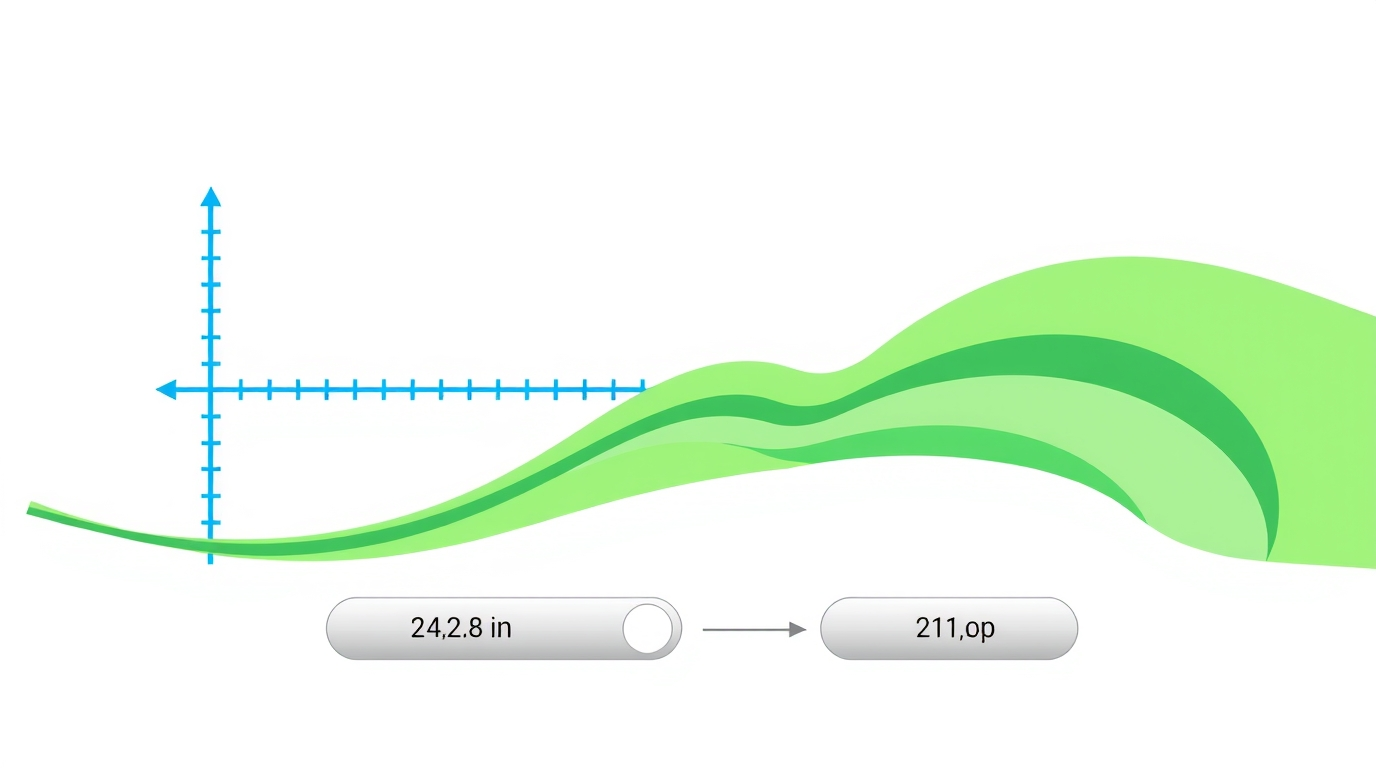Cell Doubling Time Calculator
Calculate the time required for a cell population to double based on initial cell count, final count, and elapsed time.
Biology • Growth Kinetics • Laboratory ToolsResult
Formula & Concepts
Formula:
where:
N0: initial cell count
N: final cell count
T: time period (hours or desired unit)
- Exponential growth: Cells often multiply exponentially in ideal conditions, doubling at regular intervals.
- Applications: Cell cultures, bacterial growth, cancer research, fermentation processes, and more.
- Note: Ensure all cell counts use the same units (e.g., both in cells/ml or simply number of cells).
Biology in Action
Understanding cell doubling time helps in:
- Estimating bacterial contamination speed in food safety.
- Predicting tumor growth for cancer prognosis.
- Optimizing yeast fermentation in biotechnology and brewing.
Formula & Concepts
Doubling time (td) is the time required for a biological population (like bacteria or cells) to double in number.
Formula:
Doubling Time (td) = T × log(2) / log(N / N0)
where:
N0: initial cell count
N: final cell count
T: time period (hours or desired unit)
- Exponential growth: Cells often multiply exponentially in ideal conditions, doubling at regular intervals.
- Applications: Cell cultures, bacterial growth, cancer research, fermentation processes, and more.
- Note: Ensure all cell counts use the same units (e.g., both in cells/ml or simply number of cells).
Biology in Action
Did you know?
Understanding cell doubling time helps in:
- Estimating bacterial contamination speed in food safety.
- Predicting tumor growth for cancer prognosis.
- Optimizing yeast fermentation in biotechnology and brewing.
Cell Doubling Time Calculator: Unlock the Secrets of Cellular Growth
In biology and biotechnology, understanding how fast cells multiply is crucial for research, medical studies, and industrial applications. The Cell Doubling Time Calculator is a vital tool for scientists, researchers, and students to estimate the time it takes for a population of cells to double in number.
Whether you’re working in cancer research, microbiology, or bioprocessing, this calculator helps you analyze growth rates efficiently and plan experiments accurately.

What Is Cell Doubling Time?
Cell doubling time is the period required for a population of cells to double in quantity. It reflects the rate of cellular proliferation and varies widely depending on the cell type, growth conditions, and environment.
For example:
- Bacterial cells can double in as little as 20 minutes.
- Mammalian cells may take 12 to 48 hours.
- Some cancer cells show even faster or irregular doubling times.
Understanding this metric helps scientists gauge cell health, optimize culture conditions, and evaluate treatment efficacy.
How Does the Cell Doubling Time Calculator Work?
The calculator estimates doubling time based on the formula: DT=t×log(2)log(Nt)−log(N0)DT = frac{t times log(2)}{log(N_t) – log(N_0)}DT=log(Nt)−log(N0)t×log(2)
Where:
- DTDTDT = Doubling Time
- ttt = Duration of growth (hours or days)
- N0N_0N0 = Initial cell count
- NtN_tNt = Cell count after time ttt
This formula assumes exponential growth during the time interval.
Why Use the Cell Doubling Time Calculator?
- Accurate Growth Measurement: Quickly compute doubling times without manual calculation errors.
- Optimize Cell Culture: Adjust growth conditions to achieve ideal doubling rates.
- Compare Treatments: Assess how drugs or environmental factors affect cell proliferation.
- Planning Experiments: Schedule harvest or analysis points with precise timing.
Typical Applications
| Application Area | Use Case |
|---|---|
| Microbiology | Study bacterial or yeast growth rates. |
| Cancer Research | Analyze tumor cell proliferation. |
| Biotechnology | Optimize bioreactor conditions. |
| Pharmacology | Test drug impacts on cell growth. |
Example Calculation
Suppose you start with 1,000 cells, and after 12 hours, you have 8,000 cells. Using the formula: DT=12×log(2)log(8000)−log(1000)=12×0.30103.9031−3.0000=3.6120.9031≈4 hoursDT = frac{12 times log(2)}{log(8000) – log(1000)} = frac{12 times 0.3010}{3.9031 – 3.0000} = frac{3.612}{0.9031} approx 4 text{ hours}DT=log(8000)−log(1000)12×log(2)=3.9031−3.000012×0.3010=0.90313.612≈4 hours
So, the doubling time is approximately 4 hours.
Factors Affecting Cell Doubling Time
- Nutrient Availability: Lack of essential nutrients slows growth.
- Temperature: Cells have optimal temperature ranges.
- pH Levels: pH outside optimal range hinders division.
- Oxygen Levels: Aerobic cells depend on oxygen.
- Genetic Factors: Different species or cell lines grow at different rates.
Additional Tips
- Always measure cell counts accurately at start and end points.
- Avoid measuring during lag or death phases; focus on the exponential growth phase.
- Use replicates for reliable data.
External Resources
For more information on cell growth and doubling time, visit:
- ScienceDirect: Cell Proliferation and Doubling Time
- NCBI – Understanding Cell Growth Dynamics
Features Included
- Cell Doubling Time Calculator
- Calculate Cell Doubling Time
- Cell Growth Rate Formula
- Cell Culture Doubling Time
- Exponential Cell Growth Calculator
- Doubling Time of Cells
- Cell Proliferation Rate Calculator
Summary Table
| Parameter | Description |
|---|---|
| Initial Cell Count | Number of cells at start N0N_0N0 |
| Final Cell Count | Number of cells after time NtN_tNt |
| Growth Duration | Time period ttt (hours/days) |
| Doubling Time | Calculated doubling time DTDTDT |
Final Thoughts
The Cell Doubling Time Calculator is indispensable for anyone working with cell cultures. It empowers you to quantify growth rates easily, avoid experimental guesswork, and optimize your research or production processes. Accurate doubling time calculations can lead to breakthroughs in medicine, biology, and biotechnology.
